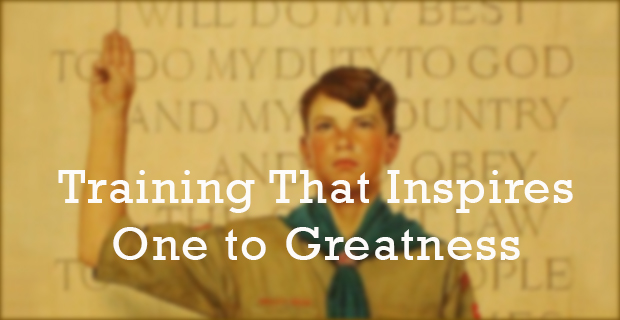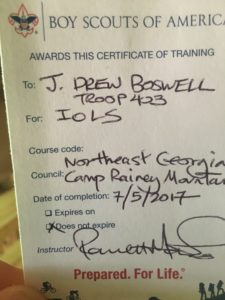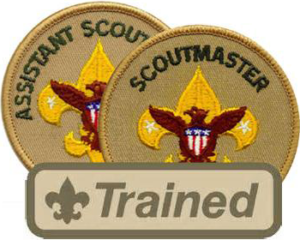
Boy Scout summer camp is one of those times when training is regularly available — This week I took part in a 16-hour course called IOLS (Introduction to Outdoor leadership Skills). It included topics ranging from Dutch oven cooking, first aid, knot tying, to new BSA regulations and orienteering (plus much more). These were basic skills that every Scoutmaster is supposed to know so that he/she can properly teach the boys in their Troop.
“Every Scout needs and deserves trained leaders. Leaders should understand their responsibilities, the aims of the program, and how to deliver it with enthusiasm and fun.” — BSA
 I anticipated the skills, but what I did not expect is the sheer level of information that I didn’t know. After leading Scouts for almost 10 years there is still so much that I don’t know and things that we are just not doing as a Troop. Some of these limitations are subject to my limited schedule, and financial restrictions we have as a Troop — but what I have come to realize is that I need to do a better job at my own leadership. I came to understand this as I was going through the training, so the following are some thoughts relating to training and leadership in general.
I anticipated the skills, but what I did not expect is the sheer level of information that I didn’t know. After leading Scouts for almost 10 years there is still so much that I don’t know and things that we are just not doing as a Troop. Some of these limitations are subject to my limited schedule, and financial restrictions we have as a Troop — but what I have come to realize is that I need to do a better job at my own leadership. I came to understand this as I was going through the training, so the following are some thoughts relating to training and leadership in general.
___________________
People Should Actually Be Trained. Training (and continued training) should leave those being trained (better) equipped to do what they do better. You may say, “Isn’t that obvious?” But more times than not, training is boring, the leader/supposed equipper is unprepared, and the main reason for the training is to check a box, get a card, or to just advance in some way — but no one is better equipped than had they not attended at all.
In order for meaningful training to happen, the equipper has to take his/her job seriously and understand why the skills are important to be learned. If the training is important enough to be required (or strongly suggested if you are in the non-profit volunteer world), then the skills are important enough to be learned. If no one is learning or being equipped then everyone’s time is being wasted.
People Should Be Inspired To Be Better Leaders. The time of training should inspire those in the class to improve what they do, not by shame or discouragement, but by setting a high standard. In my training this past week I was taken on a journey with a group of Scout leaders who had done their job for over 25 years and they were good at what they did.
I wanted to be like these leaders, to return to my Troop and model what I had learned. I wanted to be a better leader because of being around these experienced leaders. Training should inspire us to be better leaders. Most people in Scouting are there as volunteers because they want to make a difference in the lives of boys. So, inspiring them is not a unreachable goal — they just need a leader.
People Should Want More. As I am thinking through all of the material that we covered, I have many more questions and have a realization that there is so much more that I need to learn. So training should also lead to a thought process where one seeks further training. I want to be a better leader and I know that I need to learn more if our Troop is going to improve.
The training this weekend began where I am going to end, with the mission statement of BSA, “The mission of the Boy Scouts of America is to prepare young people to make ethical and moral choices over their lifetimes by instilling in them the values of the Scout Oath and Law.”
The Scout Oath and Law mention character expectations of honor, duty, country, God, trustworthy, loyalty, etc. These are noble goals to inspire young men to have. But, it just doesn’t happen. It is planned, coordinated, and has people who are passionate about seeing these things come to be in the life of young men.
___________________
Whatever noble task you have set your heart toward it most likely will require continual growth and learning on your part. If you happen to be the one training, begin with why are you training in the first place (your mission), and then make sure that people are learning in a meaningful manner. Inspire them to follow a high standard and give them a model to follow (you as a great leader). If you do this, then they will want more, and you will have accomplished your goal of training.
